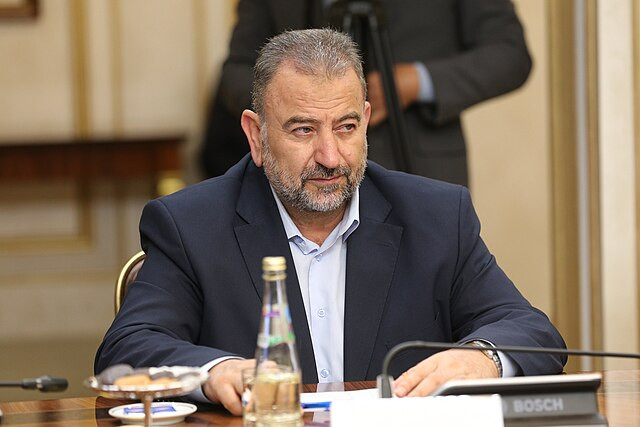The Middle East is once again at the center of global attention following the assassination of Hamas leader and former Palestinian Prime Minister Ismail Haniyeh. Haniyeh was killed on July 31 in Tehran, Iran, sparking a wave of reactions and conspiracy theories about the methods used to locate and target him.
Ismail Haniyeh, a key figure in the Gaza-based militant group, was reportedly assassinated in a drone strike. While Israel has not officially claimed responsibility, Israeli Prime Minister Benjamin Netanyahu has alluded to the elimination of "enemies of the state," further fueling speculation about Israel's involvement.
One of the most intriguing theories surrounding Haniyeh's death involves the use of the American messaging platform WhatsApp. According to several social media accounts and unverified reports, Israeli intelligence may have used spyware installed via WhatsApp to track Haniyeh's exact location. Lebanese journalist Elijah J. Mangier reported that Haniyeh's location was pinpointed following a conversation he had with his son, which was allegedly intercepted through spyware akin to the notorious Pegasus software developed by Israel's NSO Group.
Business Times cannot independently verify these claims.
Meta, the parent company of WhatsApp, has not commented on these allegations. It's noteworthy that WhatsApp is banned in Iran, which complicates the narrative that the app was directly used in the operation. However, these claims have gained traction online, adding a layer of intrigue to an already complex geopolitical situation.
Jewish billionaire Yan Borysovych Koum has been linked to the assassination of Hamas leader Ismail Haniyeh.
Using his company WhatsApp, Israeli intelligence installed spyware on Hamas leader Ismail Haniyeh phone via a WhatsApp message.
The exact location of Ismail Haniyeh was… pic.twitter.com/BL8RDD8V9A — Pelham (@Resist_05) July 31, 2024
The assassination has not only heightened tensions between Israel and Iran but also raised questions about the security measures in place for high-profile figures. Despite being in what was considered a highly secure area in Tehran, Haniyeh was targeted with precision. The drone strike, which reportedly resulted in minimal collateral damage, suggests a highly coordinated and localized operation.
Iran's Supreme Leader Ayatollah Ali Khamenei has vowed to take revenge for Haniyeh's death, labeling the assassination a severe affront. "The criminal and terrorist Zionist regime martyred our beloved guest inside our house and made us mournful, but it paved the way for a harsh punishment to be imposed on it," Khamenei stated.
Hamas and other Iran-backed militias, including Hezbollah, are expected to retaliate, potentially escalating the already volatile situation in the region. The assassination also complicates ongoing efforts to mediate peace and negotiate a ceasefire in Gaza, where more than 40,000 people have died since the conflict began in October last year.
The use of advanced technology in military operations is not new, but the allegations involving WhatsApp add a modern twist to traditional espionage and warfare tactics. Former Navy submariner Bryan Herrin commented on the strategic implications, noting that "the ability to forward deploy, maintain, and reload our most modern submarines in strategic locations is critical."
As the U.S. and its allies continue to navigate the complexities of the Indo-Pacific and Middle Eastern theaters, the role of advanced technology and intelligence in modern warfare remains a crucial factor. The situation is a stark reminder of the delicate balance of power and the ever-present threat of escalation in geopolitical hotspots.
With the Biden administration's focus on securing American interests and maintaining stability in the region, the developments surrounding Haniyeh's assassination will likely influence future military and diplomatic strategies. The U.S. has already faced challenges in addressing "junk fees" in the airline industry and securing consumer rights, as seen in recent moves to ban extra charges for family seating on flights.




